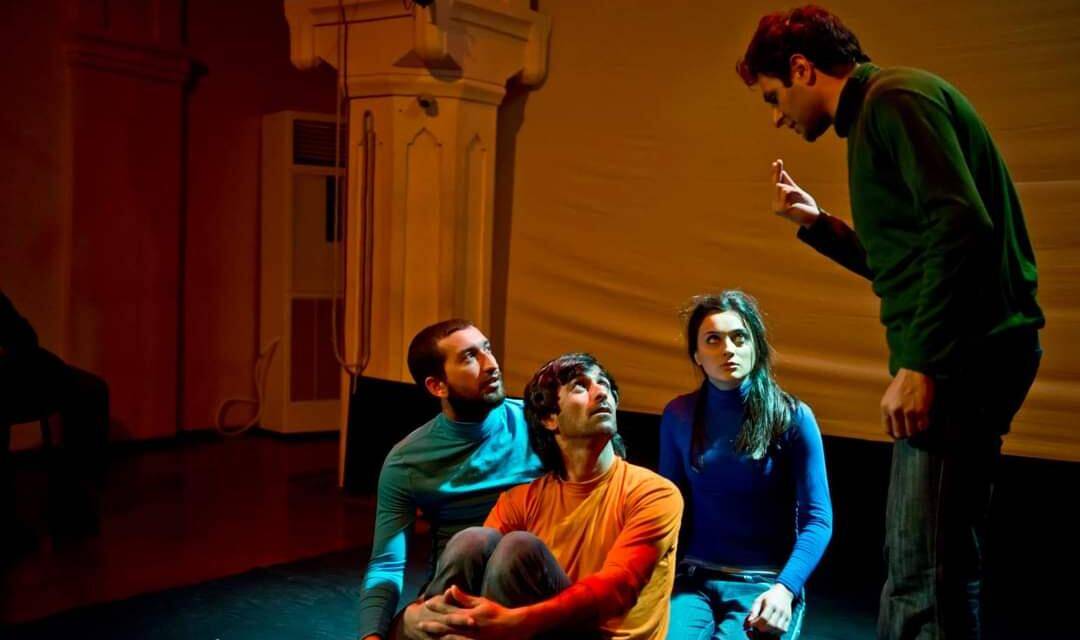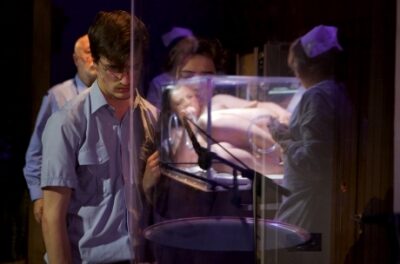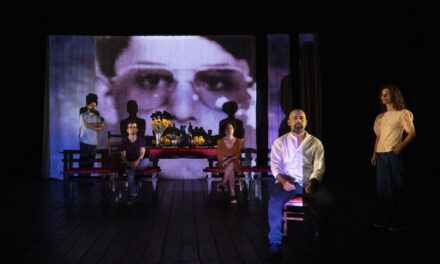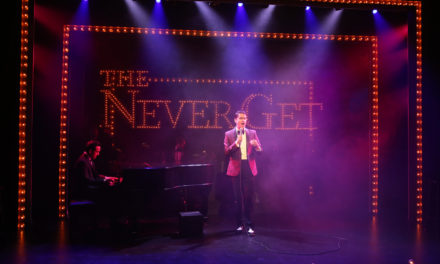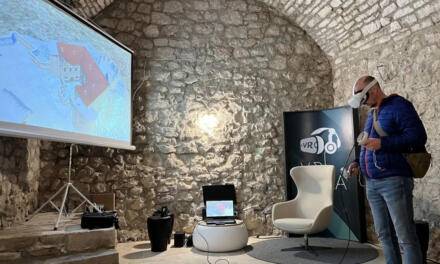Ulviyya Heydarova: “I switch on my computer, open Word and put my heart and thoughts into action”
If you have not heard anything about contemporary Azerbaijani dramaturgy, you should definitely start to get acquainted with the texts of the young, but winning the attention of critics and the public author, Ulviyya Heydarova. A screenwriter, playwright, and writer, she is not afraid to take on subjects with strong emotional swings. Her texts do not offer actors and directors simple problems and banal solutions. She brings to the stage strong characters who have experienced catharsis and are not afraid to show their bare feelings. Ulviyya Heydarova’s texts have been translated into many foreign languages and participated in and won theatre festivals and competitions. Our conversation was about her path to theatre, her first theatrical experience, strong heroines, and the peculiarities of contemporary Azerbaijani theatre.
Emiliia Dementsova: Ulviyya, how did your love affair with theatre begin?
Ulviyya Heydarova: It would be untrue to say that I found myself as an author in the theatre. In my opinion, theatre is such a place that the road to it cannot be neither smooth nor comfortable. I think if it were, the allure of the theatre would quickly disappear. The interest in theatre never diminishes. On the contrary, even if the most modern technology transports you to an unknown planet, theatres will continue to operate and put on plays on Earth. Because at the heart of the world is drama. Almighty God “plays” us, so to speak, in all genres, and “plays” well. First of all, let me say that before drama, I used to write short stories. Even one of my early short stories called “The Notebook” won first place in prose at a local literary contest. This was when I was working as a correspondent for Pəncərə magazine, the official organ of the Ministry of Culture. My job threw me right into the world of art and culture. Going to premieres and concerts, writing articles about them, meeting and interviewing artists was a major part of my job. One day my editor-in-chief, the writer-publicist Gunel Anargyzi, asked me to prepare an article for a column in our magazine. According to the terms of the column, two artists were to speak on a topic and I was to then write what they said. When my editor said that the next guests of the column would be the People’s Artists of Azerbaijan, outstanding actors Fuad Poladov and Shukufa Yusupova, I was happy. Because these are the great actors of the Azerbaijani stage. The interview was difficult because of my inexperience, but everything turned out well. I guess after that I understood, as you said, that I had a love affair with the theatre.
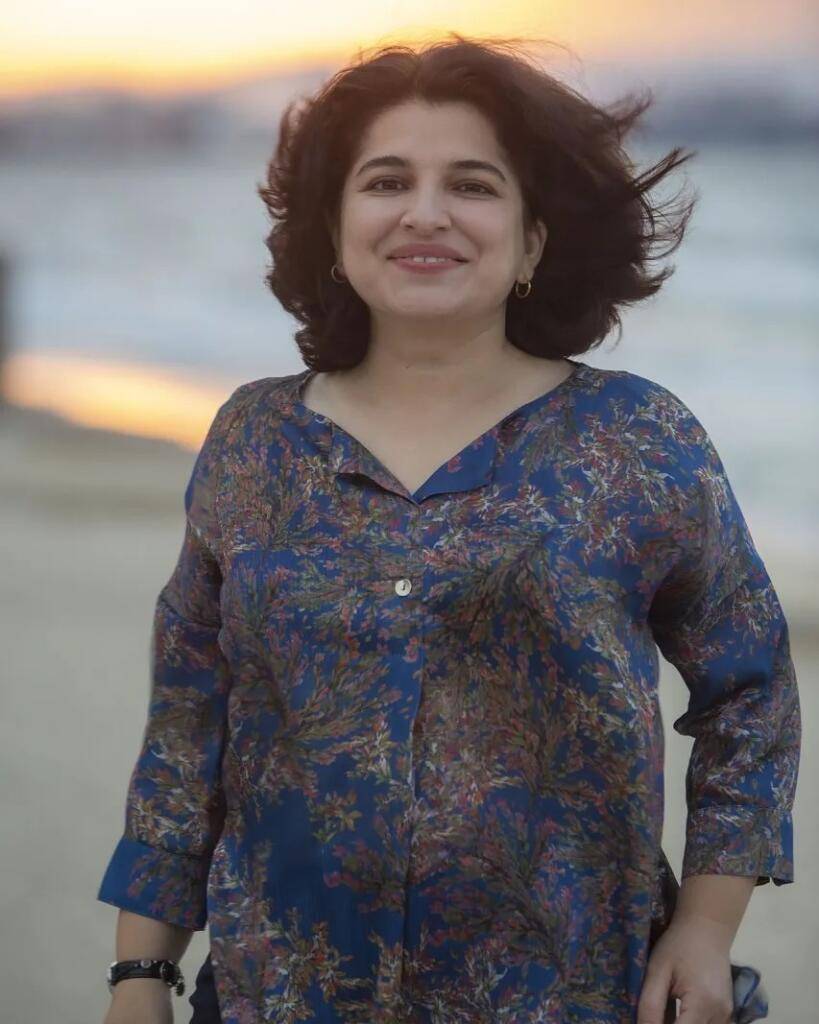
Ulviyya Heydarova. Copywrights: Ulviyya Heydarova.
ED: Yad.Dash (the name consists of two words together forming the word «Memory», right?) Your first play, your first performance – do you remember your impressions when your text came to life on stage?
UH: The play “Yad.Dash” (Memory) literally left a deep trace in my memory. After all, the first is never forgotten. I had the proudest, most unforgettable day of my life at my first premiere. There were a multitude of colours. This glorious event was given to me by director Tarlan Rasulov, who was then the director of the State Theatre YUĞ, and has since founded the first interactive theatre “DOM” in Azerbaijan. I also felt proud of “Yad.Dash” because my play was staged in such a fantastic theatre as YUĞ, which is completely different in its aesthetics from the theatres of Azerbaijan, I would even go so far as to say the world. In my opinion, YUĞ is more a space for the soul than a theatre. The founder of the theatre, the outstanding director of Azerbaijan, Vagif Ibrahimoglu left behind a school in which his students, including Tarlan Rasulov, have great love and respect for the foundations he laid in Azerbaijani theatre. Until then, if I had been told that a director was staging a play by a young author previously unknown to him, I would not have believed it. But now that I have experienced this marvellous event, I believe in such happy accidents – as long as there are such artists as Tarlan Rasulov, that open that doors of the theatre for young people and give them an opportunity to express themselves as authors. If Shukufa Yusupova made me fall in love with the theatre, director Tarlan Rasulov made me fall in love with the theatre process with the play, “Yad.Dash”, which he staged on the basis of my first play.
ED: I saw a play based on your monopoem “I Believe”. It was memorable and made a strong emotional impression. The image of a woman who has lost her son goes back in your monologue to the image of a mother who loses her sons during wars.
UH: In general, there are few vivid female characters compared to male characters, both in world theatre and in cinema. There are not many playwrights creating vivid female characters in leading roles in Azerbaijani dramaturgy. It is true that I intend to create characters with interesting storylines and strange fates. It doesn’t matter whether the character is male or female. Now back to the piece “I Believe”. The feeling of war has accompanied me all my conscious life. Not only me, all Azerbaijanis. Imagine that in 1988, when the Karabakh conflict and the war between Azerbaijan and Armenia began, I was seven years old, that is, I was in the first grade. In 2020, I was thirty-nine years old when the territorial integrity of Azerbaijan was established by the determination of our victorious army in the 44-day War. From the age of seven to the age of thirty-nine, I lived in a state of war. This is too long for a human life. That is, most of my life was at war. It is true that I was not bombed, not forcibly evicted, but I felt this pain to the depths of my soul. War also means thousands of mothers who lost their sons in the war. Our glorious victory undoubtedly greatly encouraged all creative people, including me. Before the war I sometimes lived in hope and sometimes despaired, but after the victory my confidence grew. I wrote the mono-performance “I Believe” after our victory and dedicated it to mothers who lost their sons in the war. Because all mothers suffer equally in wars. Mothers who lost their children in the war rejoice at the sound of newborns. I touched on this point in the work “I Believe.” My heroine says, “Somewhere now a woman becomes a mother. May that mother never know what her child’s pain is!”.
ED: Your play “Womb” also centres on a woman who is preparing to become a mother. Is it possible to say that it is your dramaturgical mission to convey a woman’s voice?
UH: I can’t say that my mission as a playwright is to write a text to show the female voice and its place on stage. I would love to have more female characters of different personalities on our stage. Our female characters are usually the wife, mother, sister or girlfriend of the main character. That’s why I’m not satisfied with that, and that’s why I switch on my computer, open Word and put my heart and thoughts into action. To what extent I achieve this, time will tell.
ED: A female clown is a very unusual, bright character with a large amplitude of emotions. To fulfil this role requires an actress, as they say, “with a great octave”, brave, not afraid to take risks on stage. When you wrote this text, did you see a specific actress in front of you (from the past, perhaps), or was this monologue born out of inspiration?
UH: Although I wrote my monoplay “Womb” in 2017, I spent years thinking through its storyline and yet wrote it over four days. I remember in the summer of 2005, I wrote a short story called “Mother and Child.” The story was about a mother who resorted to certain means to give up her unborn child. The story was told by the child in her womb, unaware of her mother’s intentions. The story was published, which subsequently caused a great outcry on social media. After a few years spent on the story, I had the idea to write a monopiece, and this time the whole story would be told by the mother herself, rather than the baby in her womb. Although I had the idea, I thought a lot about the character, I started looking for the identity of the mother, and that search went on for five years. Finally, I found it. She is a woman who grew up in an orphanage, an actress by profession, but who has worked in the circus all her life, making a living as a clown. I should note that I dedicated Womb to all my favourite actresses. Although none of my favourite actresses have yet performed this mono-performance, the work has brought me great success. For the first time, “Womb”, as it is called, opened the doors of Europe to me. In 2018, I had the honour of representing my country at the Next Stage Europe – 2018 International Festival of Young Playwrights, hosted by the Goethe-Institut in Potsdam, Germany. The work was among the winners of the Batumi International Monodrama Festival in 2020, and as a result, it was staged in Georgian as part of the festival, attracting great interest from Georgian audiences. The play was staged in Malatya, Turkey, by director Rasim Ashin and in Azerbaijan by the chief director of the Sumgayit State Drama Theatre, People’s Artist Firudin Magerramov, and is currently in the theatre’s repertoire. I believe that “Womb” will spread around the world. Because it is a work that can be staged anywhere and anytime. All it takes is a brave actress, not afraid to take risks on stage, and a courageous director.
ED: Why are you so attracted to the genre of monopoems?
UH: You know that the most difficult thing in dramaturgy is to write a mono-performance. In other words, you have to create an event in a place where the audience can watch the actor play with excitement throughout the performance. I like to set myself challenging tasks. But I will note that I don’t limit myself to just monopieces. I also have plays with two or more characters. They just haven’t been staged yet.
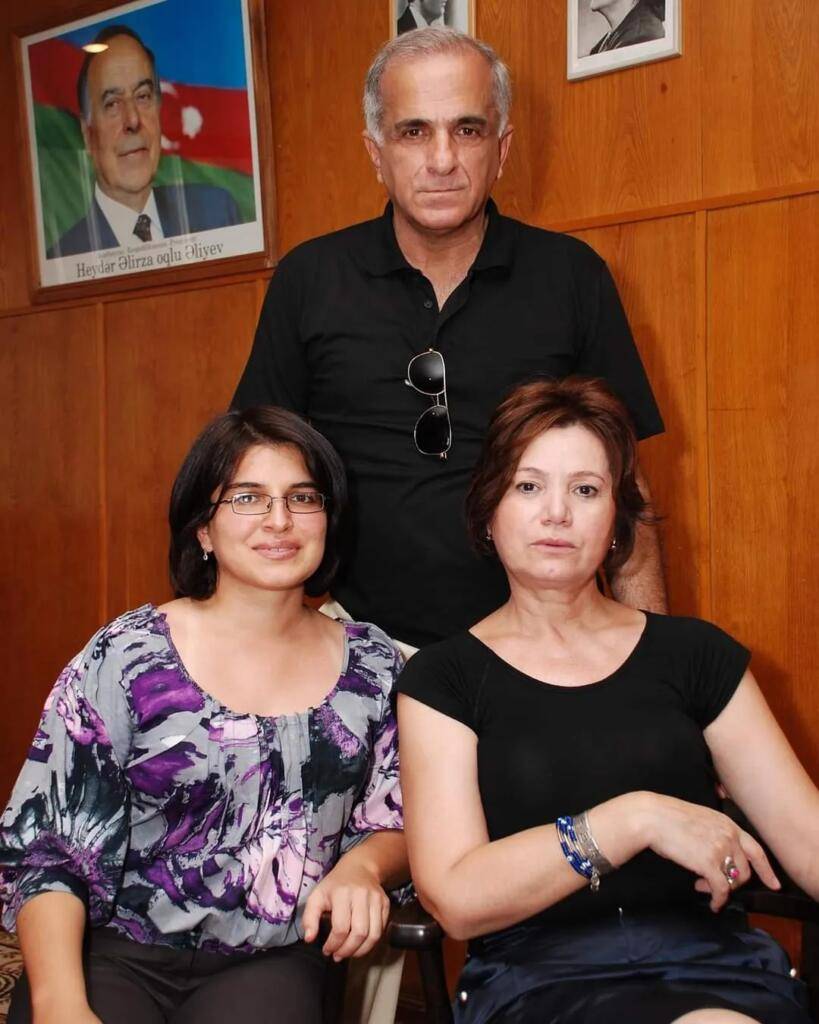
Ulviyya Heydarova and famous Azerbaijani actors mentioned in the text: Fuad Poladov and Shukufa Yusupova.
ED: How much demand is there for contemporary plays in Azerbaijan? Is it difficult to break through to the stage?
UH: It depends on the taste and objectivity of the director, artistic director and theatre director. In recent years, Azerbaijan has carried out reforms in the field of culture, including theatre. A few months ago, Azerbaijan hosted the Theatre Forum for the first time. It was also a kind of open tribune. I am an optimistic person by nature. There are many talented playwrights of young and middle age. I believe that the repertoire of our theatres will be decorated with both classics and works by young authors. This process has already begun.
This post was written by the author in their personal capacity.The opinions expressed in this article are the author’s own and do not reflect the view of The Theatre Times, their staff or collaborators.
This post was written by Emiliia Dementsova.
The views expressed here belong to the author and do not necessarily reflect our views and opinions.

